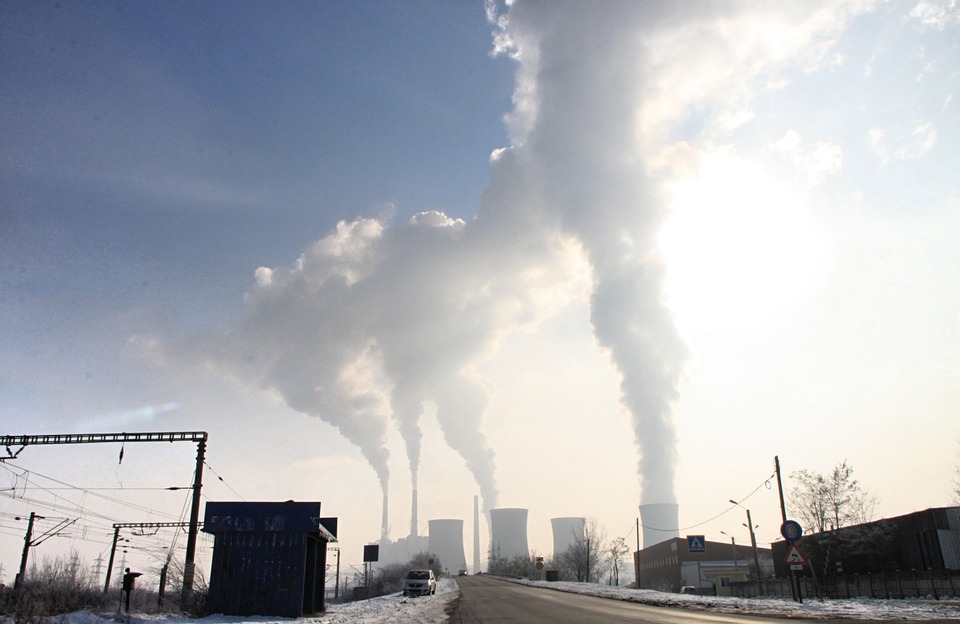Here are the companies that are stalling on cutting emissions. Reports

Most companies that have made a commitment to carbon neutrality have not devised plans to massively reduce emissions. Among the most virtuous, however, are Stellantis and Maersk. What the latest “Corporate Climate Responsibility Monitor” report says
The plans for the net zeroing ( net-zero ) of the greenhouse gas emissions of twenty-four large international companies are almost all seriously insufficient, as well as ambiguous. This is stated in a new report produced by the NewClimate Institute and Carbon Market Watch study centres, entitledCorporate Climate Responsibility Monitor 2023 .
FOR NET-ZERO EMISSIONS NEED TO CUT BY 90%
Virtually all large global corporations have made a commitment to achieve carbon neutrality by 2050. However, according to the study, the climate strategies of fifteen of the twenty-four companies analyzed have "low" or "very low" integrity compared to the goal set.
In fact, the authors of the report argue that the net-zero situation can only be achieved with a cut in emissions of at least 90 percent. However, the average level of reduction by companies is around 36 per cent, "totally insufficient" for the purpose of limiting the increase in the Earth's temperature to within 1.5°C.
THE MOST VIRTUOUS COMPANIES
Only five of the 24 companies analyzed – Stellantis (automotives), Maersk (shipping), H&M (clothing), Holcim (building materials) and Thyssenkrupp (steel) – want to achieve a 90 percent emissions cut.
Conversely, the carbon neutrality pledges of half of the companies in the study – including Apple, Microsoft and Google – are misleading, as they predict only a 3 percent reduction in total emissions. Carbon (or climate) neutrality means a situation in which the quantity of emissions produced is "equalized" with the removal of the same quantity of greenhouse gases from the atmosphere using specific technologies .
THE COMMITMENT TO DEEP DECARBONIZATION
According to Thomas Day, an analyst at the NewClimate Institute and co-author of the report, the term net-zero "should mean deep decarbonisation, so as not to deceive investors and consumers". Just three companies – the telecommunications companies Vodafone and Deutsche Telekom, and the aforementioned Maersk – have committed to a path of deep decarbonisation along the entirety of their value chains.
COMPANIES OFFSET, NOT CUT, EMISSIONS
Two-thirds of the companies analysed, on the other hand, do not aim at actually reducing emissions but at offsetting them through forestation projects, for example, which experts however judge to be of little use in the long term: forests could be destroyed by fires, freeing up carbon and erasing the gains made.
CUTS BY 2030 AND THE RISK OF GREENWASHING
According to the study, achieving carbon neutrality by 2050 requires cutting emissions by 43 percent from 2019 levels by 2030. By that date, however, most of the twenty-four companies have committed to reducing their emissions by only 15 percent.
The ambiguity about net-zero goals, the differences in approach and the lack of regulatory frameworks and control by the authorities increase the risk of greenwashing by companies. Greenwashing is a practice that consists in presenting one's own operations as more “sustainable” and “green” (ie with a positive environmental impact) than they actually are.
Companies that are truly "leaders in the fight against climate change", we read, "struggle to distinguish themselves from those that make a lesser commitment. Only a small minority of companies, including Maersk and Stellantis, are making potentially credible commitments to meaningful decarbonisation by 2030 and beyond. However, these companies are being equated with others, including American Airlines, Carrefour, Deutsche Post DHL, Fast Retailing (Uniqlo), Inditex (Zara), Nestlé, PepsiCo, Volkswagen and Walmart, who make similar claims and cite their own SBTi certifications in defense of climate strategies that actually show a very limited commitment to reducing emissions”.
“Many of the underlying problems we identified a year ago,” continues the report, “remain unresolved: as regards Carrefour, it appears that more than 80% of its stores have been excluded from its targets; Instead, Nestlé has set a target of 50% emissions reductions by 2030, which actually translates into a commitment to reduce emissions across the entire value chain by only 16-21%, as some emission sources have been excluded and the compensation plans are controversial”.
This is a machine translation from Italian language of a post published on Start Magazine at the URL https://www.startmag.it/economia/aziende-zero-emissioni-nette-studio/ on Tue, 14 Feb 2023 06:36:27 +0000.
